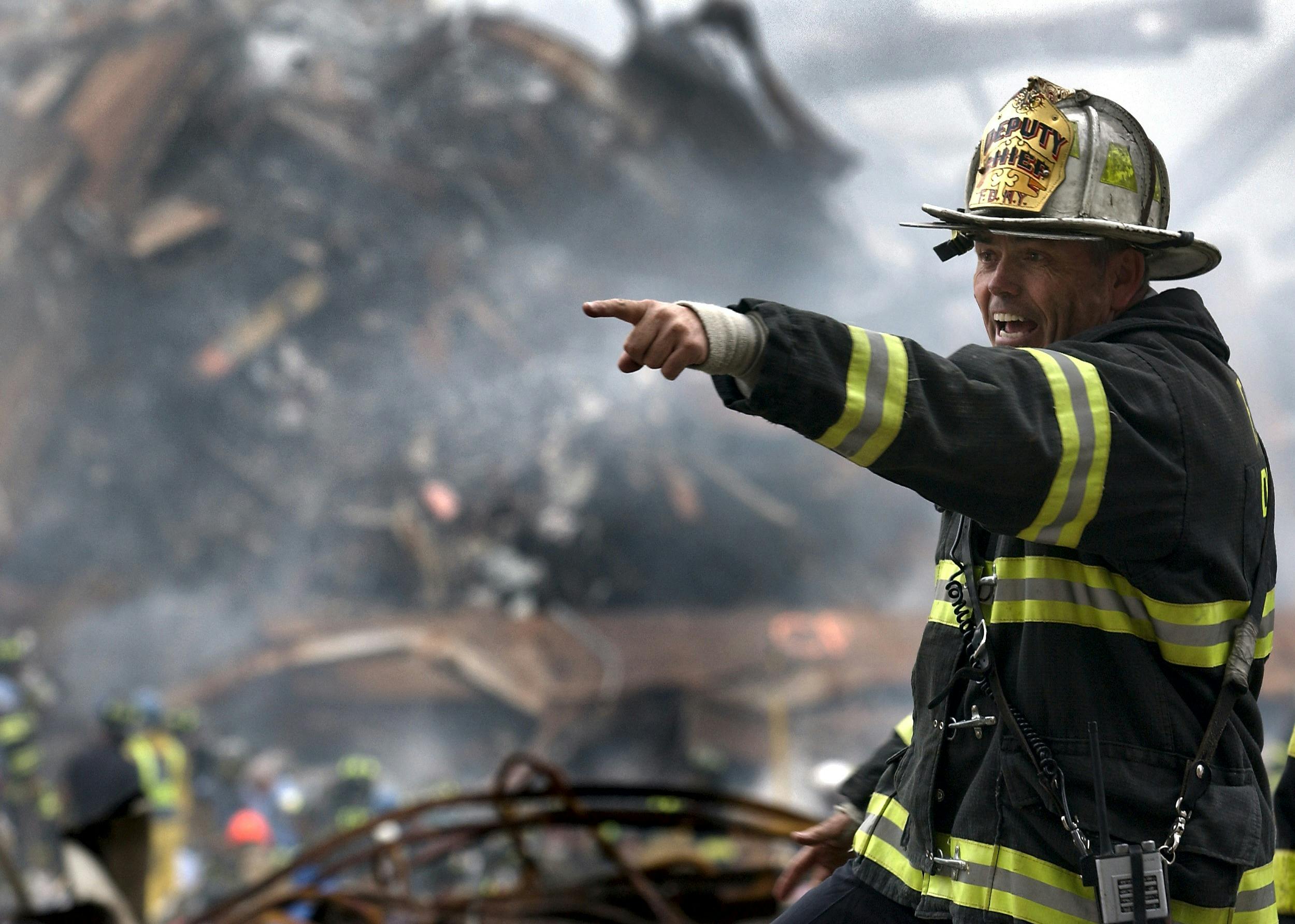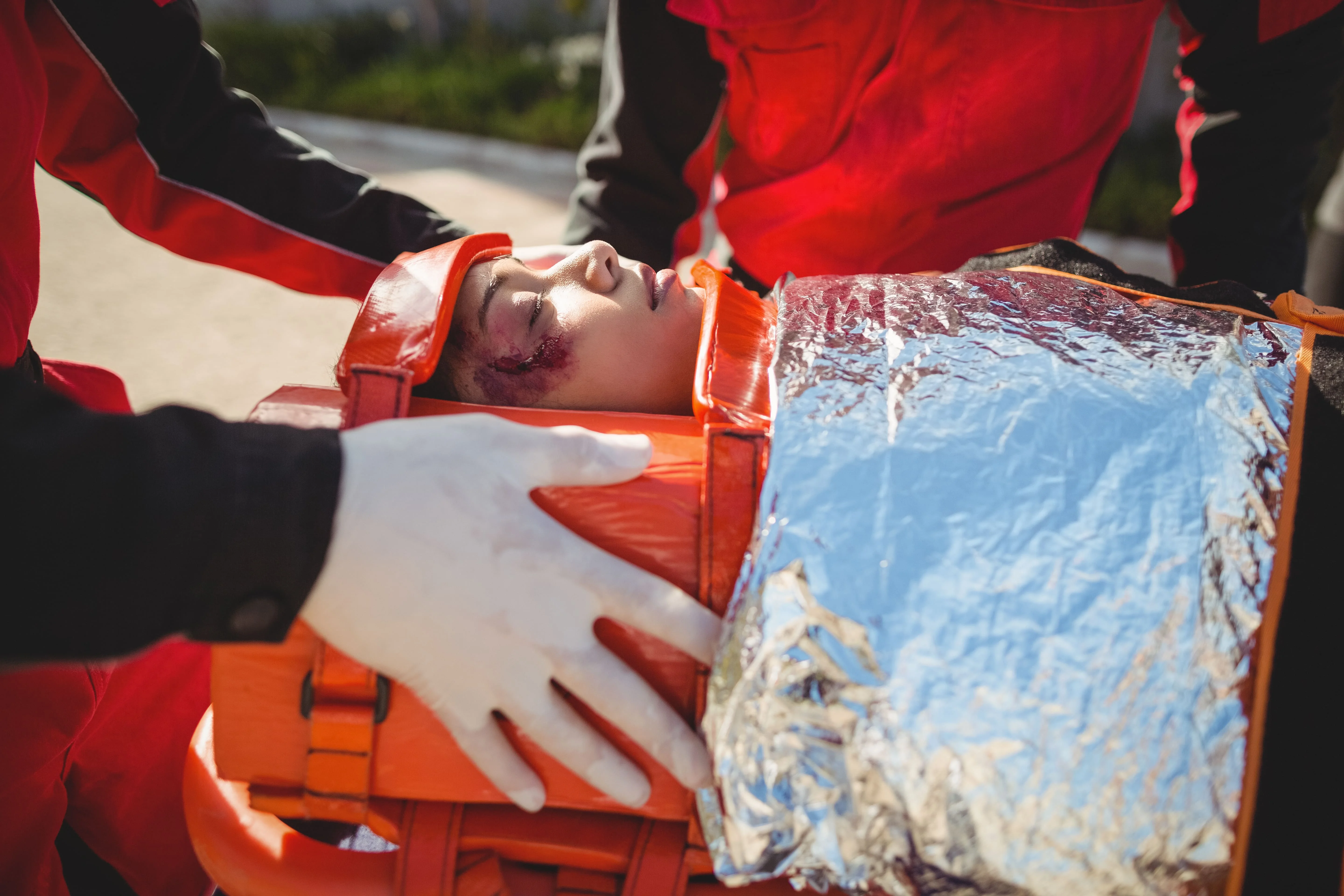How to Become a Fire Investigator - Full Guide


Fire investigation is an exciting and rewarding career with decent growth potential in the coming years. Fire investigators are highly skilled, and it's important to proceed into this career field with a solid understanding of what’s required and the challenges involved.
If you’re wondering how to become a fire investigator, this clear and comprehensive guide will answer all of your questions, covering all aspects from education and training to ethics and what to expect in terms of career advancement.

Table of Contents
- There are multiple routes to becoming a fire investigator, but most require a postsecondary degree (bachelor’s preferred) in a related field, such as fire science or criminal justice.
- Contact organizations like the International Association of Arson Investigators (IAAI) and the National Association of Fire Investigators (NAFI) for specialized training and career-specific certifications.
- Practical experience is invaluable. Entry-level positions in fire service or law enforcement are a great place to start for on-the-job training.
- A career as a fire investigator requires strong analytical and communication skills, along with being able to meet the physical demands of the job.
- An understanding of the relevant laws, regulations, and ethical standards governing fire investigation is essential.
- A career in fire investigation offers opportunities for career advancement and specialization. Arson investigation and forensic fire scene reconstruction are examples of advanced career paths.
- Joining professional fire investigator organizations is a great way to network and take advantage of available resources for continuing education.
According to the Bureau of Labor Statistics, the employment of fire inspectors and investigators is projected to grow by 7% from 2021 to 2031. This is on track for average growth for all occupations. As of 2023, there were approximately 14,200 fire inspectors and investigators employed in the United States.
How do you get your foot in the door for this exciting and growing career as a certified fire investigator? It all starts with education and training.
The majority of employers seeking fire investigators will prioritize candidates with post-secondary education. Typical degree requirements are an associate or bachelor’s degree in fire science or related fields, like criminal justice and forensic science.
Fire investigation training programs and certification programs are also important for gaining skills and building credibility. There are several specialized training courses offered by organizations like the International Association of Arson Investigators (IAAI) and the National Association of Fire Investigators (NAFI).
Postsecondary Education
Is it possible to land a career as a fire investigator without a postsecondary education degree? Technically, yes, but having a postsecondary degree in a relevant field, along with fire infestation training, is something most employers look for. Plus, a four-year fire science degree is required to become certified by certain federal organizations, such as the Bureau of Alcohol, Tobacco, and Firearms.
Examples of relevant fields of study include fire science, forensic science, engineering, and chemistry. With a fire science degree, you’ll complete coursework that includes the chemistry of fire science, fire codes and laws, fire investigation techniques, and fire physics.

Associate Degree Programs
Associate degree programs in fire science or a related field like criminal justice are generally two-year programs that set you up with a solid educational foundation for career and educational growth.
Because it takes less time to earn an associate degree compared to a bachelor’s degree, these programs are generally more condensed with coursework that’s hyper-specific to your intended career path. An associate degree in fire science will cover the basics of fire behavior, prevention, and key fire investigation techniques.
Bachelor’s Degree Programs
An associate degree may help get your foot in the door, but a bachelor’s degree is preferred by most employers and governmental or federal agencies. Pursuing a degree in fields like fire science, criminal justice, or forensic science opens doors to career opportunities while providing a deeper understanding of important fire science concepts.
A bachelor’s degree is a must if seeking employment beyond entry-level fire investigator positions. With a bachelor’s degree, coursework covers areas including arson investigation, evidence collection, and courtroom procedures.
Many certification programs also require a bachelor’s degree as a prerequisite. The Federal Emergency Management Agency (FEMA) is a good source for fire investigation certification courses, with the prerequisites for each course listed on the website.
Training and Certification
Training and certification are key to becoming a certified fire investigator. These types of programs provide specialized training that sets participants apart as individuals who are credible and committed to excellence in the field of fire investigation. Fire investigation training is also key to validating knowledge and skill sets and leads to future career prospects.
There are a number of organizations that offer certification programs. The International Association of Arson Investigators (IAAI), the National Fire Academy, and local state fire marshal offices are just a few.
During training, you learn or update important skill sets, such as fire scene documentation, evidence collection, fire behavioral analysis, or arson investigator training for those looking to advance into that field. You’ll also get access to a fire glossary to understand the key terms used in the industry.
Prerequisites for fire investigation certification programs like NAFI and IAAI vary by provider. The IAAI has certified over 10,000 fire investigators worldwide since its inception in 1949. Their prerequisites include having a certain number of points earned through training, education, and experience, with all points being documented. They also require a 70% passing grade on closed-book examinations for certification.
Hands-on work experience is one of the most important assets new fire investigators can bring to the table. This can come from work experience in the fire service or law enforcement, both of which provide valuable hands-on opportunities.
Working in either of these fields as a starting point can provide practical experience in understanding fire behavior, what to look for in determining the cause of fires, and essential safety skills that are difficult to acquire without work experience. Likewise, law enforcement officers are trained to understand behaviors, investigations, and how to conduct themselves in an ethical and lawful manner.
Likewise, law enforcement officers are trained to understand behaviors, investigations, and how to conduct themselves in an ethical and lawful manner.
Continuing education while working in fire service or law enforcement adds even more valuable credentials to your resume. The IAAI offers specialized continuing education classes that can be completed while employed by the fire service or law enforcement.
Ready to learn how to become a fire investigator? Here are the details of the entry-level positions to get you started:
Entry Level Positions
Entry-level positions are a great starting point for those interested in the field of fire investigation. Common entry-level positions include working in fire service or law enforcement. These positions offer valuable hands-on experience in fire behavior, safety procedures, and emergency response that is impossible to acquire through education and training alone.
Law enforcement might seem like an unlikely entry point for aspiring fire investigators, but these positions offer unique perspectives in collecting evidence, understanding legal procedures, and criminal investigations. These are skill sets that fire investigators must have.
If you’re currently in an entry-level position as a fire worker or law enforcement, the next step is to look at fire investigation certification to help further develop the skills needed for the job.
Firefighter
Fire investigators need to have hands-on experience, and there’s no better way of getting it than being on the scene as a firefighter. Fire workers have the advantage of being trained to understand fire behavior, safety procedures, and emergency response.
Fire investigator training programs tend to highly favor candidates who have the hands-on experience of working directly as a firefighter. Fire investigators and firefighters often work closely, and an understanding of the job and culture is hugely beneficial.
Police Officer
Fire investigators are required to have in-depth knowledge of legal procedures, including collecting evidence and investigating crimes, both of which are a daily part of the job. For this reason, many employers may also favor fire investigators who have a background in law enforcement.
Police officers who are interested in a career shift into fire investigation should plan on taking fire investigation or arson investigation training to cover any educational or experience gaps.

On-the-Job Training
Education, certification, and a related background are all important prerequisites for fire investigators, but much of the practical experience needed for the job comes from on-the-job training.
Fire investigation training on the job includes a range of mentorship programs, hands-on experience in evidence collection, documentation, interviewing, and the importance of following legal and ethical protocols.
During on-the-job training, new fire investigators can continue to build their skills and experience by working with mentorship programs through different agencies and taking advantage of continuing education opportunities.
Online courses are ideal for those who are juggling a new career and busy personal or family lives, but local seminars and workshops provided by fire investigating organizations are also an invaluable resource.
In addition to hands-on experience and education, learning how to become a fire investigator also includes fine-tuning analytical skills and ensuring that you’re physically able to perform the job requirements.
To drive this point home, a study by the National Institute of Standards and Technology (NIST) notes that when critical thinking and problem-solving skills were addressed during training, fire investigators were better equipped to correctly determine the origin and cause investigations of fires.
Concerning the physical demands of the job, the Bureau of Labor Statistics notes that at baseline, fire investigators need to lift and carry up to 50 pounds and that crawling and climbing are required to access many fire scenes.
Let’s take a closer look at what all of this means.

Analytical and Critical Thinking
Fire is a destructive force that doesn’t always leave a trail of evidence. An individual who is interested in becoming a certified fire investigator needs to constantly use analytical and critical thinking skills at the scene and throughout a fire investigation.
When fire investigators arrive on the scene, they must make note of the scene, evaluate for the presence of safety hazards, and look for fire patterns and evidence, including tire tracks or shoe prints. For fire investigators, everything can be evidence, from the pattern of broken glass to traces of biological evidence.
Observation and Attention to Detail
From the moment a fire investigator arrives on the scene they must be focused on observing the location and have a keen attention to detail. This includes not only looking for evidence directly at the scene but also the surrounding factors.
In the event of a fire, the scene can change very quickly, making it essential to notice even the smallest details in an instant.
Problem-Solving
Fire investigation requires a high level of problem-solving abilities. Fire investigators are required to identify, collect, and analyze information from the scene. Then, they must take all of this information, analyze how it fits together, and determine the origin of fires.
Communication and Interpersonal Skills
Fire investigators communicate with various stakeholders throughout the fire investigation process. This means communication needs to be clear and concise while also fostering a collaborative work environment.
With a number of agencies and stakeholders involved in fire investigations, a lack of clear communication and interpersonal skills can harm an investigation. For instance, the ability to establish rapport with witnesses, victims, and suspects from various backgrounds while in a heightened emotional state is essential for gathering information.
Here are a few important skills acquired during fire investigation certification.
Report Writing
Report writing is an essential skill for a certified fire instructor. Reports need to be clear, concise, and above all, accurate. The development of new software tools has made this aspect of fire investigation easier.
Blazestack is one of the best report-writing and case-management software. It is designed to help fire investigators close cases faster with tools that streamline data collection, improve collaboration, and save time with automated report generation.
Interviewing
During the fire investigation process, fire investigators are required to conduct multiple interviews as a way of gathering and analyzing information. Interviews may include witnesses, victims, and suspects, along with members of the fire service team who were at the scene.
Effective interviewing is a skill that doesn’t come naturally to everyone. Fire investigator training classes can help teach these skills and how to utilize them effectively.
Physical Abilities
Fire investigators aren’t part of the firefighting team, but this doesn’t mean that their jobs are any less physically demanding. The NFPA Guide for Fire and Explosion Investigations outlines some of the necessary physical skills for fire investigators.
Fire investigation requires a thorough examination of the physical scene, which can include climbing, crawling, and navigating tight spaces. This is a position that requires a level of physical agility, strength, and stamina, especially when working in more challenging environments and dealing with heavy equipment and debris.
To drive this point home, a study by the National Institute of Standards and Technology (NIST) notes that when critical thinking and problem-solving skills were addressed during training, fire investigators were better equipped to correctly determine the origin and cause investigations of fires.
Concerning the physical demands of the job, the Bureau of Labor Statistics notes that at baseline, fire investigators need to lift and carry up to 50 pounds and that crawling and climbing are required to access many fire scenes. Let’s take a closer look at what all of this means.
Individuals with mobility issues or health conditions like chronic back pain should consider if their current abilities meet the demands of the job.
Fire investigators are responsible for collecting and handling evidence, conducting interviews, and ensuring that all evidence is prepared in a way that is admissible in court should the investigation lead to legal proceedings.
Why is this an important part of fire investigation training? The National Institute of Justice reports that 30% of fire investigations are compromised by evidence that is potentially inadmissible in court due to mishandling of evidence.
For those seeking a career in fire investigation, becoming familiar with the NFPA 921: A Guide for Fire Explosion and Investigations will help you better understand legal and ethical expectations.
Fire Codes and Standards
The National Fire Protection Association (NFPA) outlines more than 300 codes and standards that fire investigators must know and follow. If you’re thinking this is a lot, you are correct, but learning them and understanding their importance is a key part of fire investigation certification.
These standards represent best practices, and the NFPA frequently updates them based on current research and practical experience from those in the field. Upholding these standards helps to ensure everyone’s safety and the integrity of fire investigations.
Evidence Collection and Handling
In the event that a fire investigation leads to legal proceedings, the integrity of the evidence is everything. Fire investigators are responsible for collecting evidence and following proper handling procedures to ensure the evidence can be used in a court of law.
Fire investigators are also required to understand and follow the proper chain of custody requirements for handling and preserving evidence that is used in legal cases. Without attention to this, evidence may be determined to be inadmissible.
Ethical and Professional Conduct
The IAAI outlines a code of Ethics and Professional Conduct for fire investigators. It begins with acknowledging that you’re part of an important and honorable profession and ends with recognizing that the job is centered on being a truth seeker, with numerous ethics in between.
Fire investigators are required to uphold the most ethical principles, including respect for privacy and confidentiality. Misusing or mishandling any information with regard to an investigation is a violation of ethics for a certified fire investigator.
This table outlines the basics of ethical principles for fire investigators.

Fire investigation is an exciting career field on its own, which is why many fire investigators are content to stay in their positions long-term. However, for those who are looking for career advancement, there are several advanced career paths that a certified fire investigator can take.
One area of potential is advancement into supervisory and management roles. Movement into these roles is often a natural transition for those who enjoy leading teams and mentoring new fire investigators.
Others may be more interested in a specialized area of focus in fire investigation. Areas of specialization include arson investigation, explosives investigations, and forensic fire scene reconstruction.
How does a specialization in arson investigation differ from a fire investigation? Arson investigators are called to the scene to investigate whether or not the fire was intentional, rather than a natural or accidental cause. For example, bad wiring can cause a fire, but this can be either accidental or intentional.
Experience as a fire investigator is required for these advanced positions, along with the necessary certifications for each area of specialization.
Supervisory and Management Positions
A common next step up from fire investigation is supervisory and management positions. Those in these positions are responsible for managing and overseeing a team of fire investigators, along with working collaboratively with other departments and agencies.
Those who thrive in management and leadership roles are ideal fits for these positions. Time management, interpersonal skills, and years of experience as a fire investigator are key qualities for this career advancement.
Training and Instruction
This is a great area of advancement for seasoned fire investigators who are natural teachers or mentors. To become a leader in fire investigation training, experience in the field of fire investigation is a must, as is understanding the unique challenges and nuances that new fire investigators face when entering the field.
Specializations
Earning a specialized fire investigation certificate is one of the surest ways to advance in your career. Cause and origin aren’t always an accident, and knowing when arson may be at play is the primary role of those who specialize in arson investigation.
Arson investigation is also a great area of potential because it’s not oversaturated currently. The IAAI estimates that only a quarter of its members specialize in arson investigations.
In addition to arson investigation, explosives investigation and forensic fire scene reconstruction are two other areas of specialized interest. These career advancements open the door for more lucrative pay and place you in high demand within the field.
Arson Investigation
Where a fire investigator looks at the scene and evidence to determine the cause of a fire, arson investigators are called to the scene when it is believed that the fire was intentionally set and that the case has a potential for criminal or legal involvement.
Arson investigators partner with law enforcement and may work in close collaboration with investigators from the law enforcement side. Those in the field of arson investigation need to have an in-depth understanding of forensics, along with the physics and chemistry of fire.
If you want to know how to become an arson investigator, the International Association of Arson Investigators (IAAI) offers training classes and arson investigator certification.
Explosives Investigation
Explosive investigators are called in when explosives are thought to be responsible for a fire. Explosive investigators are highly trained in the forensics of explosive agents. They are trained to identify the type(s) of explosives used and, through their investigation, gather evidence to be used in prosecution.
Some shy away from explosive investigation because it’s a career path with a fairly high level of stress, but it’s also one that can be exciting. Explosive investigators also frequently partner with law enforcement and with prosecutors in criminal proceedings.
Forensic Fire Scene Reconstruction
Those who enjoy a good puzzle or challenge might want to consider a fire investigation certification in the field of forensic fire scene reconstruction. There are fewer than 500 individuals currently in this role in the United States, making it a career path with above-average potential.
Forensic fire scene reconstructionists use advanced technology and tools to recreate fire scenes so that they can be properly analyzed. Those in this field should have a strong interest in engineering, forensic science, and the way human behavior can play into the cause of fires.
Taking advantage of the professional organizations and resources available is one of the best ways for fire investigators to stay up-to-date and position themselves for a successful career. Organizations like the International Association of Arson Investigators and the National Association of Fire Investigators are invaluable resources for those in the field.
In addition to joining these organizations, there are some great online courses, industry conferences, publications, and other valuable resources for fire investigators. Online courses and webinars are useful tools for learning new skills and adapting to changes in the field without the commitment of full certification.
Fire investigators can benefit from keeping up to date with all the relevant journals, magazines, and technical bulletins available. The more resources you’re able to access as a fire investigator, the more valuable you become in your field.
International Association of Arson Investigators (IAAI)
The IAAI is the leading organization for fire investigators who specialize, or want to specialize, in the area of arson investigation.
IAAI offers a range of certifications and classes to help you advance your career as an arson investigator. They offer certifications specific to becoming a certified fire investigator but also include specialized certifications, such as evidence collection. The organization also offers a comprehensive list of complementary training classes and growth opportunities.
National Association of Fire Investigators (NAFI)
The National Association of Fire Investigators is a non-profit organization that is committed to the support and continuing education of fire investigators. They are leaders in setting high standards in the field of fire investigation and offer a number of certifications and learning opportunities.
Certifications offered include Certified Fire and Explosion Investigator, Certified Fire Investigator Instructor, and Certified Vehicle Fire Investigator. Members also have access to the NAFI Fire Investigation Job Board.
Educational Resources
Continuing education is a valuable component of a career in fire investigation. Fortunately, there are many great educational resources available for fire investigators. This includes trade publications, mentorship programs, conferences, and professional certification programs, just to name a few.
These resources are valuable in a number of ways. Subscribing to fire investigation publications can help you stay up to date on the latest research and technological advancements, while conferences, courses, and webinars help to keep your skill set finely tuned. New fire investigators can also benefit from mentorship programs that help them learn from those who are experts in the field.
Educational Resources for Fire Investigators

Embarking on a career as a fire investigator is challenging, but it’s also rewarding and a career you can feel good about. Being a fire investigator requires perseverance, dedication, ethics, and an unrelenting curiosity and commitment to always improving.
Fire investigators play key roles in the fire service industry, especially for those who have been directly affected by fires and explosions. When you’re ready to learn more about how to become a fire investigator, organizations like IAAI and NAFI are incredibly valuable resources for their commitment to supporting aspiring fire investigators through up-to-date, comprehensive fire science investigation programs.
A career as a fire investigator can belong to you. All you need are the right arson investigation tools and resources to get your foot in the door.
Trusted by Public and Private Investigator Teams Everywhere
Whether you're a big state agency, a small local fire department or somewhere in between, Blazestack software (NFPA 921® & CJIS compliant) collects fire scene data and generates standardized origin and cause reports in a fraction of the time of other methods.
To learn more about Blazestack, give us a call at (866) 303-4344 or email us at support@blazestack.com
Get Your Free 14-Day Trial and Custom Price Quote Now
We'll let Blazestack do the talking. Try it out right now for free.
A member of our staff will be in touch shortly.


